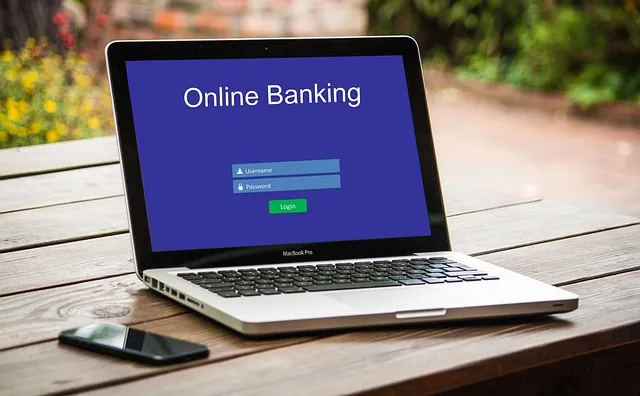In today's digital era, journalists face heightened privacy risks due to their online activities. A discreet online experience is crucial for maintaining journalistic integrity, protecting sources, and ensuring secure data exchange. Using tools like VPNs, strong passwords, and encrypted messaging platforms helps mask IP addresses, access blocked content, and safeguard communications. Best practices and dedicated services like Private Internet Access (PIA) empower journalists worldwide to uncover truths without compromising their safety or leaving digital footprints.
In today’s digital age, journalists worldwide face unprecedented challenges in maintaining a discreet online experience while gathering critical information. The rise of sophisticated surveillance techniques and increasing state control over internet access necessitates robust privacy measures. Private Internet Access (PIA) emerges as a powerful tool, enabling journalists to navigate the web securely and anonymously. This article explores the paramount importance of private internet access for journalists, delving into the role of VPNs, benefits, and best practices to safeguard their work and sources in an increasingly surveillance-conscious landscape.
- Understanding the Need for Private Internet Access in Journalism
- The Role of VPN in Ensuring Discreet Online Experience
- Benefits of Using Private Internet Access for Journalists Worldwide
- Best Practices and Tools for Maintaining Online Privacy While Reporting
Understanding the Need for Private Internet Access in Journalism

In today’s digital age, journalists worldwide rely heavily on online resources for their research and reporting. However, this reliance also presents significant risks to their privacy and safety. The need for private Internet access is more critical than ever, as it allows journalists to navigate the web discreetly, protecting their sources, methods, and personal information from prying eyes.
A discreet online experience is essential for maintaining journalistic integrity. It enables reporters to explore sensitive topics, engage with confidential informants, and gather evidence without fear of surveillance or data breaches. With private Internet access, journalists can ensure their digital footprint remains untraceable, fostering a more open and honest exchange of information crucial for informing the public.
The Role of VPN in Ensuring Discreet Online Experience

In today’s digital age, journalists often find themselves navigating a complex landscape where their online activities are under scrutiny. Sources, stories, and personal safety require a private and discreet experience. This is where Virtual Private Networks (VPNs) play a pivotal role. By encrypting internet traffic and masking IP addresses, VPNs ensure that journalists can browse the web anonymously, protecting their identity and location from prying eyes.
A VPN acts as a secure tunnel between a user’s device and the internet, making it difficult for third parties to track online activities. This is particularly crucial for journalists working on sensitive stories or in repressive regimes where surveillance is prevalent. With a reliable VPN, reporters can access blocked websites, communicate securely with sources, and gather information without leaving digital footprints that could compromise their safety and the integrity of their work.
Benefits of Using Private Internet Access for Journalists Worldwide

For journalists operating in diverse and often hostile global environments, a discreet online experience is paramount for source protection and story integrity. Private Internet Access (PIA) offers an encrypted VPN service that allows reporters to navigate the web with unparalleled anonymity and security. By masking their IP addresses and routing their internet traffic through secure servers, PIA safeguards journalists’ identities and prevents tracking by governments, corporations, or other interested parties.
This privacy is especially crucial when reporting from repressive regimes where digital surveillance is prevalent. PIA’s advanced encryption protocols ensure that sensitive information exchanged with sources remains confidential. Moreover, it enables journalists to access blocked websites and services, providing a critical tool for uncovering truths and exposing injustices worldwide while preserving their right to a secure and discreet online experience.
Best Practices and Tools for Maintaining Online Privacy While Reporting

Maintaining online privacy while reporting can be a challenge for journalists, but adopting best practices and utilizing the right tools is essential to safeguard sources and sensitive information. A discreet online experience involves a multi-layered approach to digital security. Journalists should prioritize strong, unique passwords for every account and enable two-factor authentication where available. Using a Virtual Private Network (VPN) is crucial; it encrypts internet traffic, masks IP addresses, and allows journalists to access geo-restricted content securely.
Additionally, employing secure messaging platforms ensures confidential communication with sources. Tools like Signal or encrypted email services provide end-to-end encryption, ensuring no third party can intercept messages. Journalists should also be mindful of their digital footprint; regularly reviewing and deleting old accounts, posts, and metadata reduces the risk of exposure. Using a dedicated device for reporting, keeping software up to date, and practicing safe browsing habits further contribute to a discreet online experience.
Journalists around the world face unique challenges in their pursuit of truth, especially in an era where digital footprints are easily tracked. Private Internet Access (PIA) serves as a powerful tool, enabling journalists to navigate the web with anonymity and security. By employing VPNs, they can ensure a discreet online experience, protecting their sources and themselves from surveillance. This access is vital for uncovering stories without fear of retaliation, making PIA an indispensable asset in the modern journalism landscape.
